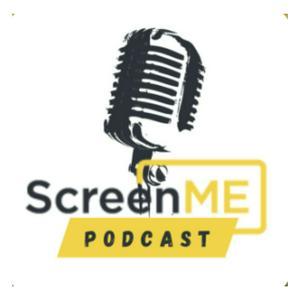#21: Leading through change: AI, journalism, and the future of media leadership. A talk with Päivi Maijanen, (LUT University, Finland and University of Trento, Italy)
In this episode of the ScreenME podcast, host Ulrike Rohn is joined by Päivi Maijanen, Associate Professor at LUT University Business School in Finland and Visiting Professor at University of Trento, Italy. Päivi brings decades of experience studying strategic leadership and organizational change in media companies, with a particular focus on how technology — and more recently, generative AI — is transforming the industry and leadership. The conversation dives deep into the real-world implications of AI adoption, highlighting both the optimism and the challenges that come with it. Päivi shares reflections on how managers can lead through uncertainty, support creative teams, and stay grounded in journalism’s public mission — even as the tools and expectations rapidly evolve. Key TakeawaysAI as a tool, not a replacement: Journalists see generative AI as a helpful assistant in brainstorming, summarizing, and streamlining routine tasks — but human creativity and judgment remain central.Leadership matters more than ever: Effective change depends on empathetic, hands-on leadership that creates space for learning and supports staff in adapting to new technologies.Organizational culture must evolve: Successful AI integration requires more than tools — it demands cultural readiness, open communication, and tailored training approaches.Small media companies face unique challenges: While AI offers efficiency gains, limited resources can slow adoption. Support for these organizations is crucial to maintain media diversity.Ethics and trust remain core: Finnish media organizations are proactively addressing transparency and data security, but the risk of polarization and algorithmic echo chambers requires ongoing attention.A call to future media leaders: Päivi encourages students and emerging managers to lead with humility, curiosity, and a deep respect for people — the most valuable resource in any organization.Quotes: "You can’t just say, ‘Let’s change’ and expect it to happen. Leadership today means being present, supporting your people, and creating space for learning — especially when navigating something as transformative as AI."“What is journalism without a journalist? AI can support the process, spark new ideas, and help with routines — but in the end, it’s still the human who makes meaning.”Keywords: Media management, Generative AI, Journalism, Organizational change, Strategic leadership, Media innovation, Professional identity, Editorial practices, AI ethics, Digital transformation, Finnish mediaBio: Päivi Maijanen is an associate professor at the LUT University, Business School, Finland and Visiting Professor at University of Trento, Italy. Her research interests are in strategic management and organizational renewal, focusing particularly on digital transformation, media responsibility, and sustainable business models in media organizations. Her current research explores how generative AI reshapes journalistic and organizational practices. Before academia, she worked at the Finnish Broadcasting Company (YLE).Host: Ulrike Rohn Sound engineer: Tanel Kadalipp (episode 1-14), Sangam Panta (episode 15 -https://bfmentrepreneurhub.tlu.ee/screenme-podcast/


